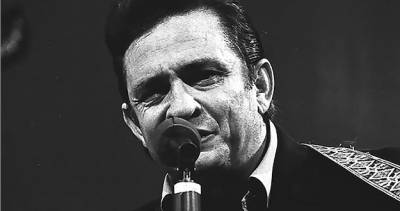Going Upriver: The Long War of John Kerry
A documentary featuring John Kerry and Max Cleland. Rated PG.
I worried, while talking myself into Going Upriver, that I was about to witness a well-timed hagiography. I wanted to say, as John Lennon famously cried--and movingly does so on this memorable soundtrack--"just gimme some truth". In fact, after some overearnestness in the setup of the tale--which restricts itself to the period John Kerry spent in Vietnam and to the period immediately following--this well-made documentary actually does reveal important truths about the man and the times he lived through.
As put together by British director George Butler, who also made Pumping Iron and two films about Arctic adventurer Ernest Shackleton, Going Upriver: The Long War of John Kerry starts out with first-person observations from now-grizzled Vietnam-era colleagues such as Max Cleland, the former Georgia senator who lost three limbs to war and an election to Republicans who compared him to Saddam Hussein.
Things actually begin with the young Massachusetts man being shaped very much in the Jack Kennedy mould, something that made military service an obligation, not just a career strategy. (In its sketch of Kerry's college years, the film manages to miss his brief but vote-worthy stint playing bass in a surf-rock band called the Electras.) Whatever his reasons for going to Vietnam, though, there can be no doubting his dedication to duty while there. This was despite his own later comments, heard alongside those of his crew, that their swift-boat missions--heading north into militarily designated "free-fire zones" where they were encouraged to shoot at "any human being" in view--were "insane and increasingly pointless".
The Apocalypse Then sequences are doubly remarkable for the amount of footage available that actually corresponds with Kerry's descriptions (none of which are recent or recorded for the film, by the way). But Upriver really gets animated when the future candidate comes home.
Every American old enough to have brushed up against that hideous conflict remembers something about his role in the Vietnam Veterans Against the War. He had more than a role, however; the film makes it clear that it was Kerry's Gandhian vision, dedication, and cool-headedness that made the 1971 VVATW march on Washington such a climactic event. And it led to his being chosen as spokesman for the movement before the Senate foreign-relations committee in an unscripted, and still incredibly potent, speech that was seen on televisions throughout the United States. It is now, of course, being used against him by history-deaf opponents.
Speaking of foes, that speech led to the grudging admiration of Richard Nixon, as revealed in recently declassified White House tapes, and to a lifelong enemy in John O'Neil, a Brylcreemed Pee-wee Herman type sent by Tricky Dick to counter Kerry's authenticity. The movie wrapped before O'Neil surfaced again, this time as the man behind the fake Swiftboat Veterans for Truth TV ads. This doesn't explain why Kerry didn't see that broadside coming. But anyone who sees Going Upriver will understand why he meets such challenges with stentorian humourlessness: one glimpse at the haunted look in his eyes on return from Vietnam tells you that despite his obvious strengths, part of him was lost in the jungle's heart of darkness.















Comments